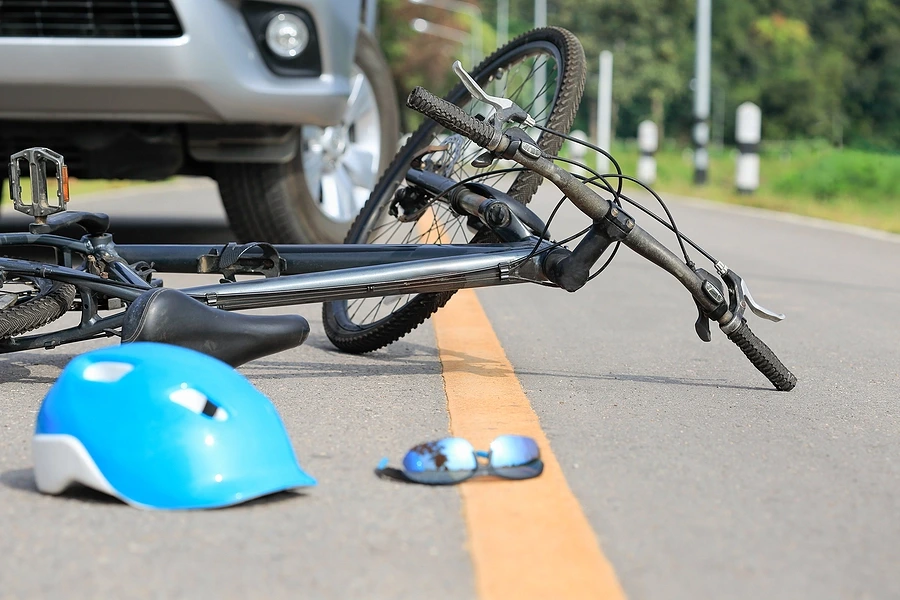How Cyclists Can Stay Safe by Understanding Fort Myers Bicycle Laws

Cycling is a popular activity in Fort Myers, offering both recreation and a practical means of transportation. Whether commuting to work, enjoying the outdoors, or exercising, cyclists share the road with motorists, pedestrians, and other cyclists. While cycling can be rewarding, it also carries risks. Understanding local bicycle regulations and knowing your rights as a cyclist is crucial for safety and for protecting yourself in the event of an accident.
Recognizing Cyclists as Road Users
In Florida, bicycles are legally considered vehicles. This classification gives cyclists many of the same rights and responsibilities as drivers of motor vehicles. Cyclists are allowed to:
-
Ride in traffic lanes when necessary
-
Use designated bike lanes when available
-
Signal turns and stops with hand signals
-
Ride two abreast as long as it does not impede traffic
Recognizing these rights ensures cyclists can navigate the roads safely and assert their legal position if involved in a collision.
Helmet and Safety Equipment Requirements
Safety equipment is an important aspect of bicycle regulations. In Florida:
-
Cyclists under 16 are required to wear helmets.
-
While adult cyclists are not legally required to wear helmets, using one is strongly recommended.
-
Bikes operated after dark must have a white front light and a red rear reflector or light.
-
Reflective materials on pedals, tires, or clothing are encouraged to enhance visibility.
Following these rules helps prevent injuries and demonstrates responsible cycling behavior, which can be important if a legal dispute arises after an accident.
Traffic Laws Applicable to Cyclists
Cyclists must obey the same traffic laws that apply to motor vehicles. Key regulations include:
-
Obeying traffic signals and stop signs
-
Riding in the direction of traffic on one-way streets
-
Yielding to pedestrians in crosswalks
-
Using proper hand signals for turns and stops
Adhering to traffic laws reduces the risk of accidents and can strengthen a cyclist’s legal position in the event of a collision.
Common Hazards for Cyclists in Fort Myers
Bicyclists face a range of hazards that can lead to accidents. Common risks include:
-
Motorists failing to yield or turning improperly
-
Distracted driving, including phone use or other in-car distractions
-
Poorly maintained road surfaces, such as potholes, debris, or uneven pavement
-
Collisions with other cyclists or pedestrians
-
Equipment failures, including brake or tire malfunctions
Understanding these risks can help cyclists adopt safer practices and remain vigilant while riding.
Steps to Take After a Bicycle Accident
Accidents can be overwhelming, but taking immediate action is crucial. Cyclists involved in a collision should:
-
Seek medical attention – Even minor injuries should be evaluated to prevent complications.
-
Contact law enforcement – A police report documents the incident and can be used for insurance or legal claims.
-
Document the scene – Take photographs of the bicycle, vehicles involved, road conditions, and visible injuries.
-
Collect witness information – Names and contact details from witnesses can support your account of events.
-
Preserve evidence – Keep damaged equipment, clothing, and other relevant items as evidence.
These steps not only protect your health but also preserve legal and insurance options.
Insurance and Legal Considerations
Cyclists may be entitled to recover damages after an accident. Potential claims can cover:
-
Medical expenses and ongoing treatment
-
Lost wages if time off work is required
-
Pain and suffering or diminished quality of life
-
Bicycle repair or replacement costs
Liability may extend to motorists, property owners, or other parties responsible for unsafe conditions. Florida law allows injured cyclists to pursue compensation from third parties beyond any insurance coverage.
Comparative Negligence and Cyclists
Florida follows a comparative negligence system. If a cyclist is found partially responsible for an accident, any compensation may be reduced proportionally. For instance, if a cyclist is deemed 20% at fault, their recovery is reduced by 20%. Accurate documentation, witness statements, and adherence to safety laws are critical to minimizing claims of negligence.
Preventing Accidents and Staying Safe
Cyclists can reduce the risk of accidents by taking several preventive measures:
-
Wearing helmets and protective gear
-
Using lights and reflective clothing at night
-
Remaining alert and avoiding distractions
-
Obeying traffic signals and road rules
-
Maintaining a safe distance from vehicles and pedestrians
Responsible cycling habits not only reduce risk but also demonstrate due care, which can be important in the event of an accident claim.
Consulting a Personal Injury Lawyer
Serious bicycle accidents may require legal guidance. A personal injury lawyer in Fort Myers can help:
-
Assess liability and determine responsible parties
-
Gather evidence, including medical records and witness statements
-
Negotiate with insurance companies on your behalf
-
File legal claims for full compensation if necessary
Professional legal support ensures that cyclists understand their rights, navigate the claims process, and pursue fair compensation for injuries and damages.
Conclusion
Cyclists in Fort Myers face both opportunities and risks on the road. Knowing local bicycle regulations and understanding your rights is essential for safety and legal protection. Wearing proper safety gear, following traffic rules, documenting incidents, and seeking professional advice when needed can make a significant difference after an accident. By staying informed and proactive, cyclists can enjoy safer rides while protecting their health and legal rights.

 Call Us Today - It's Free
Call Us Today - It's Free